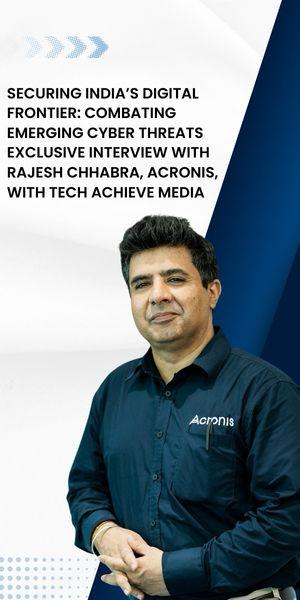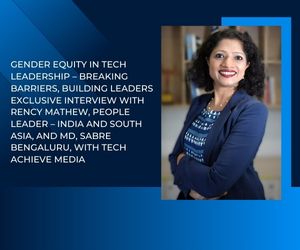Arya.ag’s Smart Farms initiative has been gaining attention for its holistic approach to sustainable agriculture by bringing together farmers, corporates, agri-tech innovators, and community value chain relationship partners (CVRPs). In this interaction with Tech Achieve Media (TAM), Shenoy Mathew, Chief Sustainability Officer, Arya.ag shares how this initiative was conceptualized, the collaboration dynamics behind it, and how Arya.ag is empowering rural women to become entrepreneurs.
TAM: Smart Farms involves a wide network of stakeholders namely partners, farmers, and CVRPs. How did you put it all together?
Shenoy Mathew: One of our biggest strengths has been a stable, deeply connected team. Most of our co-founders and leadership come from an agricultural background and they’ve studied and lived the space. We’ve known each other for a long time. We make it a practice to have lunch together twice a month and conduct brainstorming sessions every quarter. Many of Arya’s initiatives, including Smart Farms, emerge from these collective discussions. It’s a collaborative ecosystem, also enriched by our work with development partners like UNDP. Smart Farms has been a three-year journey shaped by such collective thinking.
Also read: Arya.ag Smart Farm Centres Bring Technology and Trust to the Doorsteps of India’s Farmers
TAM: Coporates are the key investors and buyers in this initiative. How difficult was it to convince them to come on board initially?
Shenoy Mathew: Honestly, we anticipated that it would be challenging at first. However, Arya.ag’s credibility worked in our favor. Corporates have seen our efficiency across 3,000-plus warehouses and with our 3,500-strong workforce. When we moved from warehousing to finance, they trusted us. When we ventured into commerce, they welcomed us again. So when Smart Farms was proposed, they already had confidence in our delivery. To our surprise, acceptance came much sooner than expected, and not just from large corporates, but also medium and small processors who saw it as a differentiator for exports and carbon credit opportunities. Recently, a French startup reached out to explore collaboration on carbon credits. That level of trust, where we’re their first call, shows how our years of credibility are paying off.
TAM: The partner ecosystem in Smart Farms seems crucial. How did you narrow down on the five partners involved in the initiative?
Shenoy Mathew: When we started addressing climate and sustainability challenges, we reflected on why many similar efforts had failed earlier. The key insight was that this space requires system-level thinking and no single entity can deliver everything. We realized collaboration was not optional but it was a necessity. So, we conducted an extensive evaluation with our agri-tech team. Each selected partner is a leader in their domain whether it’s climate insurance with Finhaat, precision agriculture with Bharat Rohan, or training through FarmBridge.
We looked at their passion, track record, and domain expertise. Interestingly, many of them reminded us of ourselves a decade ago: young, passionate, and purpose-driven. That alignment in values was key to partnership.
TAM: Let’s talk about the CVRPs, the Community Value Chain Relationship Partners, who are central to connecting with farmers. How are they selected and trained?
Shenoy Mathew: This is one of my favorite aspects of the initiative. About eight years ago, UNDP approached us with the idea of feminizing agricultural value chains and empowering women as sourcing managers. Initially, we were skeptical as we aren’t an NGO, and this was new territory. But UNDP’s global expertise and guidance helped us see the potential. Together, we created a curriculum and ran pilots in Maharashtra, Uttar Pradesh, Gujarat, and Odisha. We discovered the immense trust and influence these women held within their communities.
We didn’t create these women leaders but they already existed within SHG (Self-Help Group) ecosystems. We simply identified them, provided training, and connected them to revenue streams. Today, we’re enabling them to become entrepreneurs by running drones, conducting soil tests, selling climate insurance, and supporting precision farming practices. It’s about turning social capital into sustainable livelihood.
TAM: Is there a feedback mechanism in place? How does feedback from farmers influence your innovation roadmap?
Shenoy Mathew: We have a dedicated 100-member team that works exclusively with farmers. They are our ground intelligence unit. Feedback flows continuously from CVRPs, progressive farmers, and partner organizations. These women are fearless as they speak their minds freely and ensure we stay grounded in reality. Innovation for us is an evolving journey. Every piece of feedback helps refine our market-led, sustainable model. What’s unique here is that all stakeholders, namely farmers, corporates, and partners, want this initiative to succeed. That shared ownership is our biggest strength









